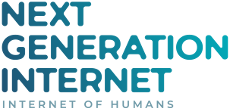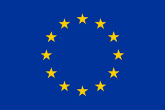Modern Authentication and Authorization in XMPP¶
This project will bring the authentication and authorization layers of XMPP up to date with current best practices for user account security. Although many users are familiar with using passwords to access online services, they have repeatedly proven to be a weak point in the security of a user's account. On the web, multiple factors, the recent FIDO/WebAuthn standards and the well-established OAuth2/OIDC protocols are being used to shore up defences against phishing and unauthorized account access.
Meanwhile, single-factor password authentication unforunately remains the only widely-available option for signing into XMPP accounts. Most XMPP services and clients do not support requiring multiple factors to access an account. Neither do they support securely granting access to your account to a third party (e.g. a hosted web client, such as Movim) without exposing your password, nor selectively revoking access if a device is lost, stolen or compromised.
Over the coming months, this project will deliver:
- Support for multi-factor authentication in a widely-deployed XMPP server (Prosody)
- Mechanisms to make multi-factor authentication practical on non-persistent connections (i.e. securely reidentify a previously-authenticated device)
- A way for users to securely grant restricted and/or temporary account access to a third party (such as a web client) without exposing their password
- The ability for a user to view and manage what clients/entities currently have access to their account
- A mechanism through which the user can revoke access to their account for a client/entity
These achievements will be realized through implementation of existing standards (such as XEP-0388: Extensible SASL Profile) in Prosody, and by development and publication of new standards where necessary. This project does not directly cover the client-side implementations, but client developers in the community will be engaged and encouraged to explore the new extensions at appropriate points in the project.
Updates
- June 2022: The project is just getting started! The primary source for updates will be Prosody's blog.
- August 2022: The first milestone has been completed - support for per-session roles and dynamic permissions in Prosody..
- November 2022: More project milestones achieved! We have unveiled a new secure token auth protocol, in tandem with an important overhaul of several authentication-related XEPs. Read more in our blog post, "Bringing FASTer authentication to Prosody and XMPP". Multiple clients have already been updated with support.
- August 2024: Refining and documenting the implementations and protocols for third-party access and management took twice the time expected, but we have finally submitted the results to the XSF!
- XEP-xxxx: OAuth Client Login (Submission | Rendered | Prosody implementation)
- XEP-xxxx: Client Access Management (Submission | Rendered | Prosody implementation)



